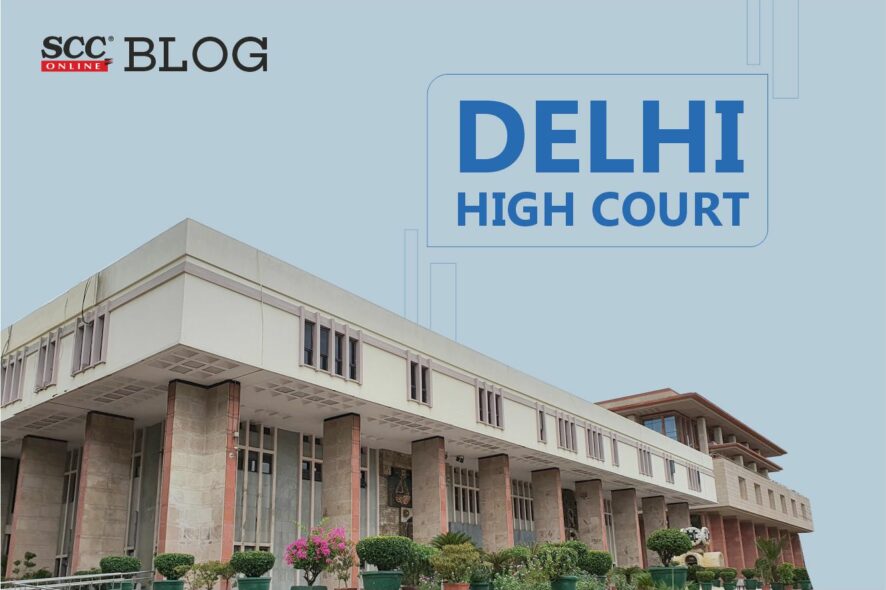Delhi High Court: In a case, where petition was filed by a son against the assessment order and the notice for initiating scrutiny proceedings under the Income Tax Act, 1961 (Act) issued in the name of his deceased father, the Division Bench of Manmohan and Manmeet Pritam Singh Arora, JJ. held that the order and notices issued in the name of the deceased assessee were null and void and the scrutiny proceedings in the name of the deceased assessee without bringing on record all his legal heirs was declared to be wrongly conducted.
Background
The petitioner was the son of Late Virendra Kumar Bhatnagar (deceased assessee) who died on 10-03-2018 and upon demise of the deceased assessee, the petitioner filed an application for registration as a legal representative of the deceased assessee in the records of the Income Tax Department (ITD). The said application was accepted, and the petitioner filed an Income Tax Return (ITR) of the deceased assessee for assessment year (AY) 2018-2019 in the capacity as his legal representative. In the ITR, it was verified and declared that the ITR had been filed by the petitioner in his capacity as a representative of the deceased assessee. In 2019, a statutory notice was issued in the name of the deceased assessee under Section 143(2) of the Act by the Assessing Officer (AO) for the AY under consideration for limited scrutiny.
Submission on behalf of the Petitioner
Counsel for the petitioner contended that the said notice suffered from a fundamental jurisdictional error as it was issued in the name of a dead person and scrutiny proceedings were proposed in the case of a dead person. Further, the said notice had neither mentioned the name of the legal heirs nor the PAN of the said legal heirs and the AO had not taken any step to bring together all the legal heirs of the deceased assessee on record at the time of issuance of the notice.
In 2021, two more notices were issued by the AO in which even though the name of the deceased assessee was mentioned, the AO had added a suffix “through legal heir Vikram Bhatnagar”. Counsel contended that such an amendment was impermissible and adding a suffix could not cure the fundamental defect of not issuing notice to all the legal heirs of the deceased assessee.
Further, it was submitted that the AO concluded the assessment proceedings and passed the consequential assessment in September 2021 in the name of the deceased assessee bearing his PAN. The assessment had been completed for the complete financial year (FY) 2017-2018, irrespective of the fact that the deceased assessee expired on 10-03-2018 and the relevant period of previous year for assessment was from 1-04-2017 to 10-3-2018 and not the complete year.
Therefore, it was submitted that the notice issued in 2018 under Section 143(2) of the Act was in the name of the deceased assessee and bearing his PAN, without bringing on record the legal heirs of the deceased assessee, the consequential order passed in 2021 under Section 143(3) for the complete FY 2017-2018 and the accompanying notices of demand and penalty issued under Sections 156 and 270(A) of the Act respectively, were illegal and without jurisdiction.
Submission on behalf of the Respondent
Counsel for the Respondent submitted that there was no dispute in facts and agreed that the notice and the assessment order had been issued in the name of the deceased assessee and for the PAN of the said assessee.
Analysis, Law, and Decision
In relation to the issue of validity of the notice issued against a dead person and the validity of the proceedings held subsequent thereto, the Court relied on Savita Kapila v. CIT, 2020 SCC OnLine Del 2540, where this Court held that:
-
The sine qua non for acquiring jurisdiction to reopen an assessment was that such notice should be issued in the name of the correct person. This requirement of issuing notice to a correct person and not to a dead person was not merely a procedural requirement but was a condition precedent to the impugned notice being valid in law.
-
A notice issued against a dead person was invalid unless the legal representative submits to the jurisdiction of the AO without raising any objection. Therefore, notice issued in the name of the deceased assessee was null and void.
The Court noted that the death of the assessee was communicated by the petitioner and the ITR also disclosed that the same had been filed by the petitioner in his capacity of a legal representative of the deceased assessee. Hence, the Court opined that the scrutiny proceedings had been wrongly conducted in the name of the deceased assessee without bringing on record all his legal heirs as per the requirement of the law.
The Court held that the jurisdictional notice was issued against the dead person and the assessment order had also been passed against the dead person on his PAN without bringing on record all his legal representatives, therefore, the said assessment order and the subsequent notices were null and void and hence, were set aside.
[Vikram Bhatnagar v. Assistant Commissioner of Income Tax, 2022 SCC OnLine Del 3899, decided on 9-11-2022]
Advocates who appeared in this case :
For the Petitioner: Advocate Rohit Jain;
Advocate Aniket D. Agrawal;
Advocate Mansha Sharma;
For the Respondent(s): Senior Standing Counsel Ajit Sharma;
Advocate A. Renganath.







